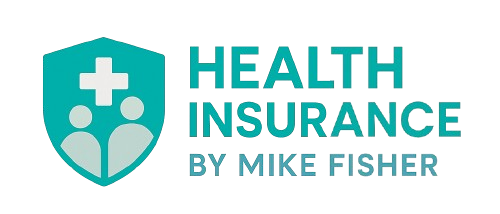Annual Enrollment Until December 7
Mike Fisher • October 11, 2025
Frequently Ask Questions During Annual Enrollment.
Annual Enrollment is in full swing, and you may have a few questions about it. These are the top questions:
Do I need to review my Medicare Supplement plan during AEP?
Do I need to review my Medicare Advantage Plan during Annual EnrollmentNo. AEP is specifically for switching Medicare Advantage or Part D prescription drug plans, not Medigap policies. You can at this time enroll in a Medicare Advantage Plan and dropping your Medicare Supplement and Part D plans with an effective date of January 1.
If you are happy with your current Medicare Advantage Plan it will roll over into next year.However, you should review your plan’s Annual Notice of Change which will outline the changes in benefits from the current year to the next starting on January 1. If you can not find your Annual Notice of Change or don’t understand the changes call your agent for an explanation or Mike Fisher, a license insurance agent, at (610) 420-6064.
I don’t know my agent; how can I find out about changes to my plan and to change?
This happens often. Any agent who is appointed by a carrier(s) can help you understand what changes will take place in 2026. You may use any agent to enroll in a Medicare Advantage Plan that they represent. Many agents will represent multiply carriers given you a choice of plans in your area.
Will changing plans affect which doctors I can see or my medication coverage?
It might. That’s why it’s important to check the details for any plan you’re considering switching to. A good agent will help you check the plan’s provider network as well as the plan’s formulary before enrolling you.You can easily compare plan information online like:• Which doctors are in the new plan’s network.• Prescription costs and restrictions like step therapy or quantity limits.
Can I change my Medicare plan after the Annual Enrollment Period?
Yes, during Open Enrollment, which is from January 1 to March 31, you can change once from a Medicare Advantage Plan to another regardless of carrier.
Additionally, changes to Prescription Drug and Medicare Advantage Plans may be possible during the year if specific life events occur. Examples include relocating outside of the plan’s coverage area or losing insurance. These situations qualify for Special Enrollment Periods, although the timeframes differ depending on the event.
A third option is if you wish to enroll in a 5-Star Medicare Advantage Plan, you may do so any time during the year without a SEP.
Which Medicare insurance plans is right for me?
Selecting a plan depends mainly on the provider network and prescription formulary. To find the best plan to fit your situation, consider these factors:• Doctor choices (Provider Network)• Health care needs (Plan’s Benefits)• Medications (Formulary)• Budget (Plan’s deductibles and copayments)
For more information, call Mike Fisher, a licensed insurance agent, at (610) 420-6064.

Navigating healthcare coverage during retirement involves understanding various plan options and details, which can be complex. For individuals nearing Medicare eligibility, it is important to compare standard Medicare coverage with supplemental options to identify the best fit for your needs. Medicare Supplement plans are available to address some of the costs not covered by traditional Fee For Service (FFS) Medicare. Medicare Supplement plans, also known as Medigap, help cover the 20% of medical costs that traditional FFS Medicare (Parts A and B) does not pay, as well as deductibles for Parts A and B. These plans do not include Part D prescription drug coverage; a separate plan must be purchased if prescription coverage is needed. Dental, vision, and hearing benefits are typically excluded from both traditional Medicare and most supplement plans, although some insurers may offer these benefits as additional options. Supplement plans allow beneficiaries to visit any provider nationwide who accepts Medicare, and most plans also cover 80% of foreign travel emergencies up to plan limits. Availability of specific plans varies by region. Currently, Plan G and Plan N are among the most commonly selected options. Plan G covers all Part A and B services except for the Part B deductible. Plan N covers all Part A and B services except for deductibles and certain copayments related to office and emergency room visits and does not cover Part B excess charges. Neither plan have out-of-pocket or lifetime limits. The core benefits of these plans remain generally consistent across different insurers, though minor differences may exist, and premium rates vary depending on age, gender, carrier, and location. For instance, in the Philadelphia metro area, average monthly premiums for Plan G are $150 for 65-year-old males and $130 for females. Plan N averages $125 for males and $110 for females. The High-Deductible Plan G, with a $2,870 Part B deductible for 2025, has lower premiums—$80 per month for males and $50 for females. Beneficiaries are still responsible for paying Part B and, if applicable, Part A premiums. Enrollment is possible during the initial enrollment period or a Special Enrollment Period (SEP), with guaranteed issue regardless of health status during these times. Afterward, insurers may require medical underwriting based on their own criteria. Policies remain renewable as long as premiums are paid. Individuals considering healthcare options after Medicare enrollment may find that a Medicare Supplement plan addresses specific coverage needs. For further information or to obtain a free quote, contact Health Insurance by Mike Fisher at (610) 420-6064.
